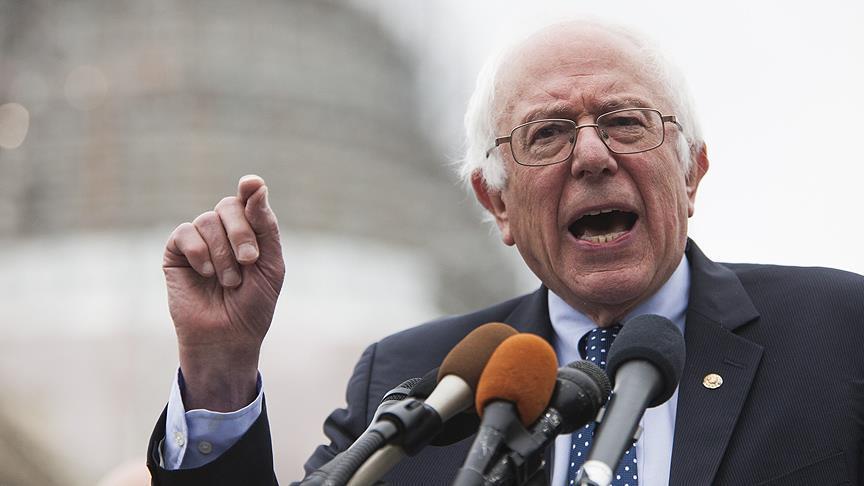US role in Cambodia enters Democratic presidential debate
Cambodian official says relations with US have strengthened after lessons learned from destabilization of Cambodia during Vietnam War

Lauren Crothers
PHNOM PENH, Cambodia
A Cambodian government official has responded to a spat between United States presidential hopefuls about the country's role in the destabilization of Cambodia 40 years ago by saying that lessons have since been learned.
Council of Ministers spokesperson Phay Siphan underlined to Anadolu Agency in a phone interview Friday that Cambodia is now looking forward in its relationship with the U.S.
“I think the past is the past, but it is a lesson learned in terms of the U.S. policy toward Cambodia,” he said.
On Thursday, U.S. Democratic candidate Bernie Sanders hit out at rival Hillary Clinton’s friendship with former Secretary of State Henry Kissinger, highlighting the latter’s integral role in the destabilization of Cambodia during the 1970s.
Clinton and Sanders are running neck and neck in the race for the Democratic Party's nomination for president in the 2016 U.S. election.
Clinton won the caucuses in Iowa and Sanders the primary in New Hampshire.
Critics have underlined what they see as complicity byKissinger -- then Richard Nixon's national security adviser -- in the illegal carpet-bombing of Cambodia during the Vietnam War.
Although intended to deprive North Vietnam -- which the U.S. was then fighting -- of troops and supplies, it helped make way for Pol Pot's murderous Khmer Rouge regime.
On Friday, Siphan told Anadolu Agency that a lot had been learned from the Kissinger era and that bilateral Cambodian-U.S. relations are now about strengthening the relationship, focusing on trade and investment partnerships and working together at next week’s U.S.-ASEAN summit, to be held in California.
In a visit to Phnom Penh late last month, U.S. Secretary of State John Kerry indicated that Cambodia’s human rights record and political situation could also be up for discussion at the summit.
On Thursday, Sanders and Clinton were going head-to-head in the sixth Democratic debate when the Vermont senator referenced one of Clinton’s books, in which she wrote about receiving support and mentorship from Kissinger.
“I happen to believe that Henry Kissinger was one of the most destructive secretaries of state in the modern history of this country; I am proud to say Henry Kissinger is not my friend,” Sanders stated.
“I will not take advice from Henry Kissinger, and in fact,Kissinger’s actions in Cambodia, when the United States bombed that country over, through, Prince [Norodom] Sihanouk, created the instability for Pol Pot and the Khmer Rouge to come in, who then butchered some 3 million innocent people, one of the worst genocides in the history of the world, so count me in as somebody who will not be listening to Henry Kissinger,” he added.
The estimated death toll from the ultra-Maoist regime, which ended in 1979, varies.
Clinton countered by saying that Kissinger’s “ongoing relationships with the leaders of China is an incredibly useful relationship for the United States of America,” but did not make any reference to Sanders’ remarks about Cambodia or the Khmer Rouge.
In the early 1970s, the U.S. provided backing to Cambodia’s Lon Nol government, as it battled swelling ranks of Khmer Rouge guerrillas.
Aerial bombardments also littered Cambodia with hundreds of thousands of tons of explosive ordnance.
As the Khmer Rouge advanced upon Phnom Penh and then ultimately took over the city in April 1975, the decision was made by then-U.S. Ambassador, John Gunther Dean, to evacuate.
In an interview given to American news agency the Associated Press last year, the elderly diplomat expressed a deep regret for his country’s actions, saying the U.S. had “accepted responsibility for Cambodia and then walked out without fulfilling our promise.”






